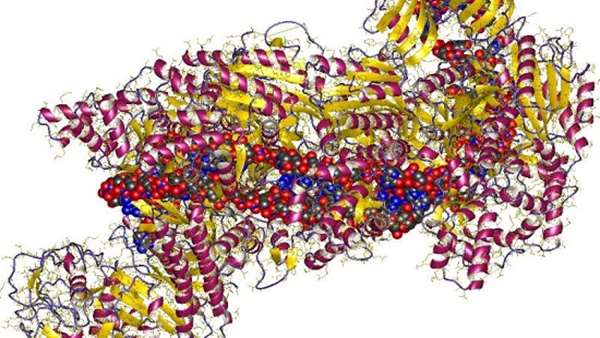Blunting CRISPRs scissors gives new insight into autoimmune disorders
Each one of our cells has the same 22,000 or so genes in its genome, but each uses different combinations of those same genes, turning them on and off as their role and situation demand. It is these patterns of expressed and repressed genes that determine what kind of cell—kidney, brain, skin, heart—each will become.
Each one of our cells has the same 22,000 or so genes in its genome, but each uses different combinations of those same genes, turning them on and off as their role and situation demand. It is these patterns of expressed and repressed genes that determine what kind of cell—kidney, brain, skin, heart—each will become.
To control these shifting patterns, our genomes contain regulatory sequences that turn genes on and off in response to specific chemical cues. Among these are "enhancers," sequences that can sit tens of thousands of genetic letters away from a gene, yet still force it into overdrive when activated. Missteps in this delicate choreography can lead cells to take on the wrong role, causing debilitating diseases, but the regulatory regions involved are difficult to find and study since they only play a role in specific cells, often under very specific conditions.
Now a research team led by University of California scientists has used a modified version of the gene-editing technique CRISPR to find enhancers—not by editing them but by prompting them into action. As reported online August 30, 2017 in Nature, a team from UC San Francisco and the University of California, Berkeley, used a tool called CRISPR activation (CRISPRa), developed at UCSF in 2013, to search for enhancers of a gene that affects development of the immune cells known as T cells. The sequences they found illuminate fundamental circuitry of autoimmune disorders such as inflammatory bowel disease (IBD) and Crohns disease.
The work was conducted in the laboratories of Alexander Marson, MD, PhD, assistant professor of microbiology and immunology at UCSF, and Jacob Corn, PhD, assistant adjunct professor of molecular and cell biology at Berkeley.
"Not only can we now find these regulatory regions, but we can do it so quickly and easily that its mind-blowing," said Corn. "It would have taken years to find just one before, but now it takes a single person just a few months to find several."
Corn is co-founder and scientific director of the Innovative Genomics Institute(IGI), a Berkeley-UCSF initiative of which Marson is an affiliate member. The IGI aims to advance CRISPR-based genome editing in medicine and agriculture to cure human disease, end hunger, and protect the environment.
Dimitre R. Simeonov et al. Discovery of stimulation-responsive immune enhancers with CRISPR activation, Nature (2017). DOI: 10.1038/nature23875





ارسال به دوستان